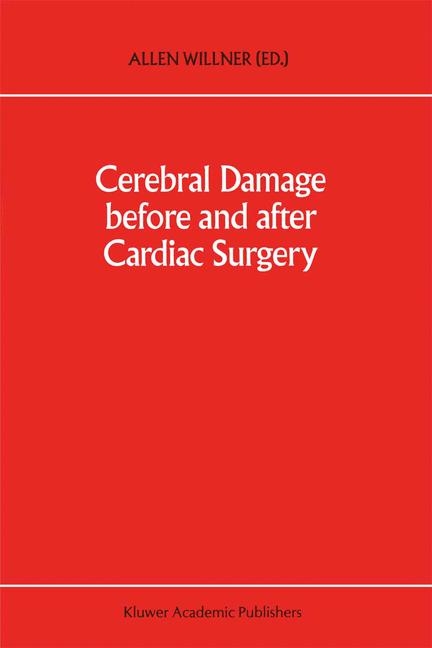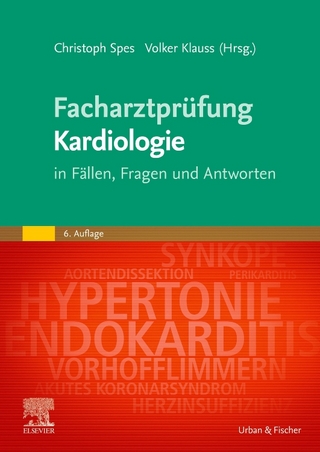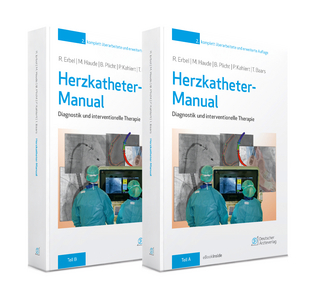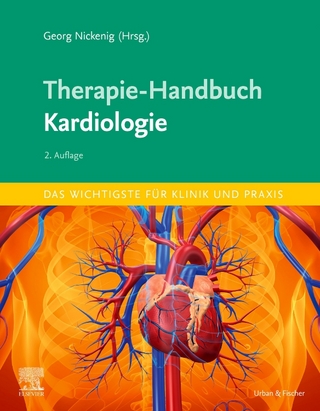
Cerebral Damage Before and After Cardiac Surgery
Kluwer Academic Publishers (Verlag)
978-0-7923-1928-3 (ISBN)
Despite numerous reports of cerebral damage in cardiac surgery, the subject has not been given the attention it requires. This book with a preface by Torkel Aberg, will remedy that situation. The causes and incidence of pre- and post-operative cerebral damage are considered in the first section. Cardiac surgery patients frequently have "preoperative" cerebral impairment, not surprising when one considers the impaired circulation from a damaged heart and the brain's prodigious need for blood. Moreover, several perioperative aspects of surgical procedures have been considered as possible causes of cerebral dysfunction, for example: microbubbles, toxic by-products, non-pulsatile blood flow. The second section describes how "imaging techniques" (CT scan, MRI, regional cerebral blood flow imaging), and "functional assessment" techniques, (Pet scan, EEG, BEAM and evoked potentials) can be used to measure cerebral damage. In the third section, psychometric and neuropsychological techniques are used to assess impaired mental abilities (abstract thinking, language, memory, visuo-spatial ability, mental flexibility, attention and concentration).
The final section explores the relationship between cerebral dysfunction and psychopathology (several types of depression, anxiety, and aspects of organic brain syndrome, delirium and dementia).
Part 1 Causes of pre and post-operative cerebral damage: the causes of preoperative psychopathology in cardiac surgery patients; cardiac surgery and acute neurological injury; prevalence and causes of cerebral complications in cardiac surgery; perfusion related parameters affecting cerebral outcome after cardiac surgery; the role of the surgical team in minimizing postoperative cerebral dysfunction; the causes of postoperative cerebral damage; central nervous risk factors in cardiac surgery. Part 2 Techniques for assessing cerebral damage: neuropsychological methods for evaluating regional brain dysfunction; computerized EEG in cardiac surgery; clinical electroencephalographic assessment of cerebral impairment; the promise and peril of topographic mapping of quantified brain electrical activity; real-time multichannel quantitative EEG monitoring. Part 3 Psychological damage: impairment in basic cognitive functioning - attention, concentration, and mental flexibility; the use of neuropsychological tests as criteria of brain dysfunction in cardiac surgery research; neuropsychological dysfunction before and after cardiac surgery. Part 4 Psychopathology: emotional reactions to cardiac surgery; adjustment disorder in cardiac surgery patients; major depression and adjustment disorder with depressed mood or depressive disorders; organic mental disorders in cardiac surgery.
| Reihe/Serie | Developments in Critical Care Medicine and Anaesthesiology ; v. 27 |
|---|---|
| Vorwort | Torkel Aberg |
| Zusatzinfo | index |
| Sprache | englisch |
| Einbandart | gebunden |
| Themenwelt | Medizinische Fachgebiete ► Innere Medizin ► Kardiologie / Angiologie |
| Medizin / Pharmazie ► Medizinische Fachgebiete ► Neurologie | |
| ISBN-10 | 0-7923-1928-1 / 0792319281 |
| ISBN-13 | 978-0-7923-1928-3 / 9780792319283 |
| Zustand | Neuware |
| Haben Sie eine Frage zum Produkt? |
aus dem Bereich


